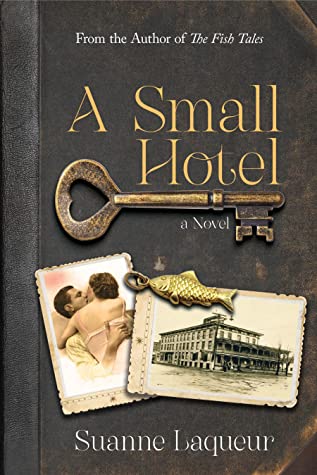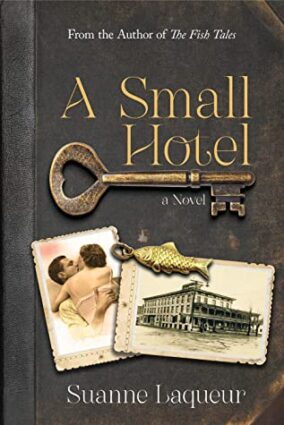
It’s the summer of 1941. Europe is at war, but New York’s Thousand Islands are at the height of the tourist season. Kennet Fiskare, son of a hotel proprietor, is having the summer of a lifetime, having fallen deeply in love with a Swedish-Brazilian guest named Astrid Virtanen. But the affair is cut short.
The rigors of military life help dull his heartache, but when Kennet’s battalion reaches France, he is thrown into the crucible of frontline combat. As his unit crosses Europe, from the Battle of the Bulge in Belgium to Mauthausen concentration camp in Austria, Kennet falls into a different kind of love: the intense camaraderie between soldiers. Sustained by his friendships, Kennet both witnesses and commits the unthinkable atrocities of warfare, altering his view of the world and himself.
Suanne Laqueur is a brilliant writer. Her flow, sentence structure, and phraseology were exquisite. I’m half Swedish, and I found the Swedish folklore especially fun. The characters were complex and vivid. Major’s sense of humor reminded me so much of my beloved grandpa. Her descriptions of people and places stirred my emotions; I could picture them in my mind as though I were there.
Her depictions of the hell of war were stunning. Using Kennet’s journal entries to tell the story was a wonderful choice. His experiences during the war were brutal and horrifying: “Causes are distanced, abstract things. Friends are in your face, in your bunk, in your foxhole. They trust you with their lives, they die in your arms with their blood and guts sprayed across your face and their teeth embedded in your flesh.” I’ve read many historical novels about WWII, but I never thought about the smell of war before. “It was ripe inside the bag—fetid with unwiped butts, unwashed hair, cigarette-smoked teeth, dirty clothes, and grimy skin and nervous sweat.”
In one scene, she describes what GIs witnessed when they liberated Mauthausen Concentration Camp in Austria. “Little by little, the GIs grasped how the camp’s staggering mass of filthy humanity comprised an international crossroads of dissidents and unwanteds. Jews, of course—Polish, Czech, Hungarian, Balkan and Dutch. But there were large groups of Spanish Republicans. French political prisoners, too. Unwanted ‘-ists’ of all kinds: socialists, communists, anarchists. Romani. Jehovah’s Witnesses. Intelligentsia. Boy Scouts. (Boy Scouts?!) The ethnic undesirables: Poles, Slovenes, Slovaks, and Serbs. Soviet prisoners of war.” Very few of these groups are mentioned in other historical novels. I went down a long, winding bunny trail researching the Boy Scouts.
I also appreciated that she highlighted several historical figures in the book: Brazilian writer and statesman Joaquim Nabuco, publishing executive F. A. Davis, and Brazilian journalist Assis Chateaubriand.
I would have given this book five stars if not for a few things. First, too much of the plot was about the war. What about the other characters that were introduced at the beginning of the book? His family life at the hotel was delightful and so well written. Second, I didn’t realize Laqueur writes LGBT fiction. Not my jam. Third, the novel needed better editing. I found several typos. 4 stars.
Published Date: September 2021
Genres: Historical fiction, Historical romance, LGBT
